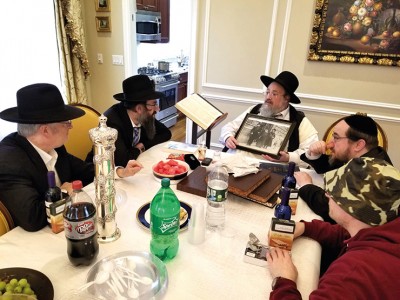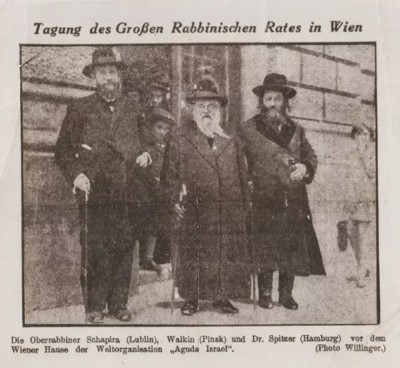

HaGaon HaRav Ahron Walkin Zt”l
Empathy: The Essence of a Jew
In the Parashot of Shemot, Va’eira, Bo, and Beshalach, we read about golut Mitzrayim and the miracles of yetziat Mitzrayim. There is so much that we read and learn from Midrashim and Meforshim. What was the point, why did we need to be in Mitzrayim, what was the lesson that was supposed to be learned, the growth that was needed for Klal Yisrael that necessitated them going through this process? Based on the Zohar, Meforshim say that it was to purify Klal Yisrael. This process enabled us to become Klal Yisrael. But what were the lessons we were taught by golut Mitzrayim?
The Rosh HaYeshiva introduced a lesson that we were taught in Mitzrayim that is usually overlooked. There is an idea of being Noseh Be’ol Im Chaveiro, to have empathy for the problems of others; to carry their troubles along with them. The Meforshim address this issue in the reading of Moshe when he was in the palace with Pharaoh. “Vayetzei El Echav Vayar Besivlosam,” he goes out to his brothers and he sees their struggles. Chazal say that the words Vayar Besivlosam mean that he gave his eyes and heart to feel the pain of his brothers in their hard work. About Moshe we know little other than he went out to his suffering brethren and killed a Mitzri who was fighting with a Jew, and also helped the daughters of Yitro. But who was Moshe Rabeinu? Why was he chosen to be the consummate leader, the one to take Klal Yisrael out of Mitzrayim?
Rashi says that Moshe had tremendous reasons to assume his position. When he was born, the house filled with light. Batya noticed that Moshe was a Jew; how did she know? Rashi answers that she saw the shechinah radiating from him. However, it does not mention this in the Torah; that was actually not the most important and impressive aspect about Moshe Rabeinu. The stories that the Torah mentions teach what was, indeed, the most noteworthy about him: the fact that he was able to feel empathy for his brothers. The Ba’alei Mussar explain that these illustrate who Moshe Rabeinu was and why he was chosen. If the Torah only chose these few stories to describe Moshe, we need to understand that this is what defined Moshe and made him who he was, and that’s why he was chosen.
The Alter from Kelm points out that there two sides of the story. The first time he went out, he showed empathy to Klal Yisrael as a whole. He carried their stones and said, “I wish I could take your place.” The second time, he went out and saw a Mitzri hitting a single Jew, he cared. From here we can see that he cared not only for the klal but also for everyone. His love was for every single Jew! Many people have big projects to help Klal Yisrael, but when an individual comes for help, they cannot find the time. Klal Yisrael is many individuals that make up the Klal. The empathy and caring cannot only be for the public community but must also be for the individual; this is what we see in Moshe’s actions.
For more shiurim by the Rosh HaYeshiva, visit www.ravahronwalkin.com, or reach out to This email address is being protected from spambots. You need JavaScript enabled to view it..
Shiurei Lev Aharon: The Legacy of the Rosh HaYeshiva:
Typography
- Smaller Small Medium Big Bigger
- Default Helvetica Segoe Georgia Times
- Reading Mode



